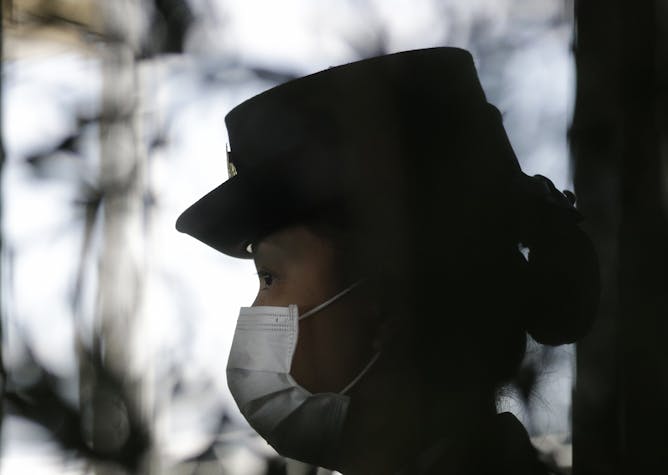 |
A note from...
Lynne Anderson
Senior Health + Medicine Editor
|
|
|
Much of the concern about the coronavirus stems from the fact that there is currently no vaccine. Prevention of the spread of infectious diseases, such as influenza and measles, depends upon getting people vaccinated. This could be a big factor in whether or not the outbreak worsens.
The good news is that researchers at several labs across the world are on the case and trying to create an effective vaccine for the coronavirus. The bad news: It could be months before one is available, explain Aubree Gordon, a professor of public health at the University of Michigan, and Florian Krammer, a virologist at the Icahn School of Medicine at Mount Sinai.
Also today:
|
Top story
|

A security guard wears a mask at Manila’s international airport.
Aaron Favila/AP Photo
Aubree Gordon, University of Michigan; Florian Krammer, Icahn School of Medicine at Mount Sinai
One of the dangers of the new coronavirus is that there is no treatment – and no vaccine. But researchers had already been at work on vaccines for close-related viruses.
|
Politics + Society
|
-
Barbara L. McQuade, University of Michigan
President Trump's likely to be acquitted by the Senate in his impeachment trial. But the impeachment's effects won't end until lawsuits are resolved.
-
John A. Tures, LaGrange College
In recent years, voters have shifted their views on issues based upon the positions of politicians -- even when that shift clashes with their ideology.
-
Brian Glyn Williams, University of Massachusetts Dartmouth
The Islamic State group, often called ISIS, is not just based in Iraq and Syria. A scholar tracks where the group and its affiliates have spread around the globe.
|
|
|
|
|
|
|
|
|
|
|
|
|
|
From our international editions
|
-
Mittul Vahanvati, RMIT University
Australia can learn from how India used community hubs to bridge the gap between government and local communities in the challenging years of reconstruction.
-
Emma Hart, University of St Andrews
The US reaction to the UK's digital tax proposals is like 1765 all over again.
-
Benjamin Nickl, University of Sydney
A Disney Hitler comedy by the director of Hunt for the Wilderpeople tests the line between funny and Führer.
|
|
|
|
| |
| |
|
|